If this is your company, CONTACT US to activate Packbase™ software to build your portal.


SABIC, a global leader in the chemical industry, today announced that Beiersdorf will innovate the packaging of its world-leading ‘NIVEA Naturally Good’ range of face creams using SABIC’s certified renewable polymers.
SABIC’s bio-based polypropylene (PP) resin, part of its TRUCIRCLE portfolio, will be used for producing the jars of Beiersdorf’s NIVEA Naturally Good day and night face creams. The new NIVEA packaging will be phased in at point-of-sale outlets worldwide from June 2021 onwards and make a major contribution to help Beiersdorf reduce its use of fossil-based virgin PP.
The new product is playing into Beiersdorf’s ambitious Sustainable Packaging Targets 2025 to reduce fossil-based, virgin plastic for its cosmetic packaging products by 50 percent. The new sustainable NIVEA jars pay into the Sustainability Agenda CARE BEYOND SKIN, by which the company is targeting a significant reduction of its carbon emissions and environmental footprint.
The agenda has set three major packaging goals to be achieved by 2025 as compared to 2019: make all of the group’s packaging 100 percent refillable, reusable or recyclable; increase the share of recycled materials in plastic packaging to 30 percent; and reduce the use of fossil-based virgin plastics by 50 percent.
“We are excited to implement this important change in the packaging of our NIVEA brand products and to be the first in the skincare mass market to use polypropylene made from second-generation bio-based feedstock on a global basis,” says Michael Becker, Head of Global Packaging Development at Beiersdorf. “Together with SABIC, we have taken a major step forward in transforming conventional fossil-based packaging in the cosmetics and skin care segment towards fully sustainable material alternatives.”
According to Abdullah Al-Otaibi, General Manager of Engineering Thermoplastics & Market Solutions for Petrochemicals at SABIC:
“Innovative cosmetics packaging using our certified renewable polyolefins can be instrumental in minimizing fossil depletion across a wide range of further consumer mass product markets, and Beiersdorf’s new NIVEA packaging can serve as a role model in this quest.” He continued: “Our materials from renewable sources facilitate the change-over from existing fossil-based applications without compromises on purity, quality, safety or convenience. SABIC is determined to help its collaboration partners benefit from this potential.”
Moreover, the new NIVEA jar is an outstanding example of successful three-way value chain collaboration, accelerating the time from ideation to the retailer shelves. By bringing SABIC to the table to work together with Berry Global, a long and trusted upstream partner of the brand owner for the production of face care packaging, Beiersdorf managed to advance the project from concept to implementation in just nine months.
“We need these strong partnerships along the value chain and are very pleased that we were able to establish and implement such a good cooperation with our suppliers Berry Global and SABIC,” adds Isabel Hochgesand, Chief Procurement Officer at Beiersdorf.
New Packaging Enables Climate Footprint Reduction
Converting the packaging to renewable plastic not only has the advantage of conserving fossil resources, but also reduces CO2 emissions. According to Beiersdorf, approximately 76 g of CO2 are saved per jar produced, a reduction of around 60% compared to the fossil-based jar. The project therefore also contributes to Beiersdorf’s climate target of reducing its greenhouse gas emissions by 30% absolutely across the entire value chain by 2025.
Derived from second-generation renewable feedstock, such as tall oil waste from the wood pulping process in the paper industry, SABIC’s certified renewable polymers (PE and PP) are not in direct competition with human food production sources.
The certified products from SABIC’s TRUCIRCLE portfolio are being produced through implementation of a mass balance accounting system. Mass balancing helps to trace the flow of materials along a complex supply chain, from the feedstock to the final product, by following predefined and transparent rules.
These rules then define whether a product can be classified as renewable or circular. For SABIC this means that for each ton of renewable or circular feedstock fed into the production process and substituting fossil-based feedstock, approximately a ton of the output materials can be classified as either renewable or circular. By adopting this approach, the certified products from SABIC’s TRUCIRCLE portfolio are accredited under the International Sustainability and Carbon Certification Plus (ISCC) scheme.
SABIC’s complete TRUCIRCLE offering comprises of design for recyclability services, mechanically recycled materials, certified circular products from chemical recycling of used plastics and certified renewable polymers from bio-based feedstock


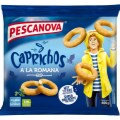
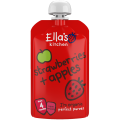

.jpg)

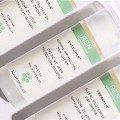





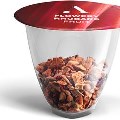



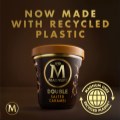
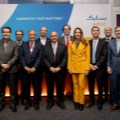

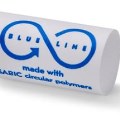







.jpg)









